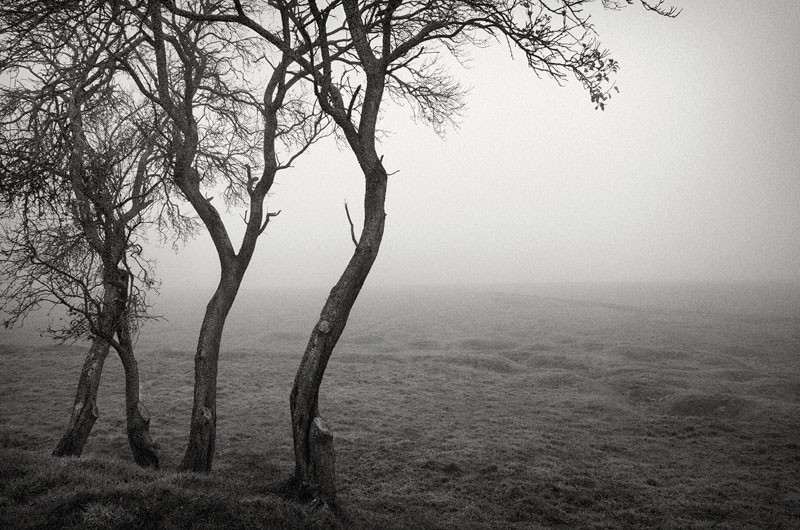
Newfoundland Memorial Park, Beaumont Hamel, November 2015
Many of the wounded lay out here throughout the day, indeed it was to be four long, agonising mid-summer days before the last of the survivors were brought in, in the main by stretcher parties working at night, though it is recorded that there was a short truce during which the Germans cooperated in pointing out casualties close to their wire. Any movement at all during the day below this, the location of the 'danger tree', was spotted and summarily dealt with by German riflemen. Some of the many dead were roughly buried, again by parties working at night for many weeks after the assault, but still more were to lie out until after the successful attack by the 51st Highland Division which was to take place on 13th November.
The battered fields here were again occupied by the opposing sides in March 1918, when the German spring offensive was halted in this sector in exactly the same trenches as those in which they had faced the French and then the British in 1914, 15 and 16
In 1921 the area of the park was purchased by the Dominion of Newfoundland as a permanent memorial to those Newfoundlanders who had died in France during the war, and upon the old trenches and overlooking no-man's-land and the distant German lines they erected a cairn of granite which had been brought over from the dominion, from the top of which Basil Gotto's great bronze caribou cries out in anguish for its fallen children.
The battered fields here were again occupied by the opposing sides in March 1918, when the German spring offensive was halted in this sector in exactly the same trenches as those in which they had faced the French and then the British in 1914, 15 and 16
In 1921 the area of the park was purchased by the Dominion of Newfoundland as a permanent memorial to those Newfoundlanders who had died in France during the war, and upon the old trenches and overlooking no-man's-land and the distant German lines they erected a cairn of granite which had been brought over from the dominion, from the top of which Basil Gotto's great bronze caribou cries out in anguish for its fallen children.

|
